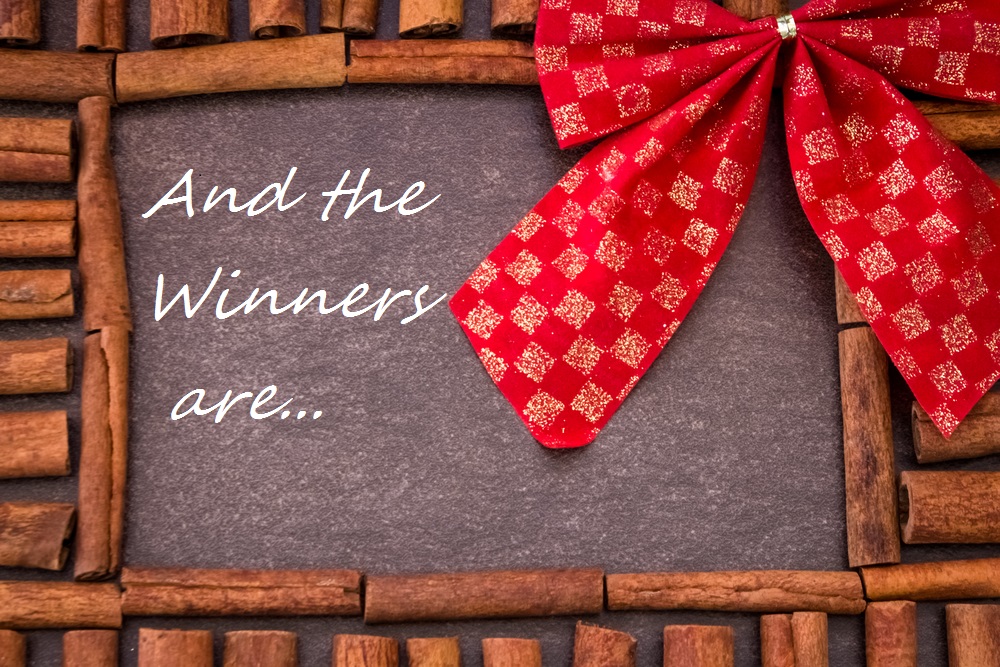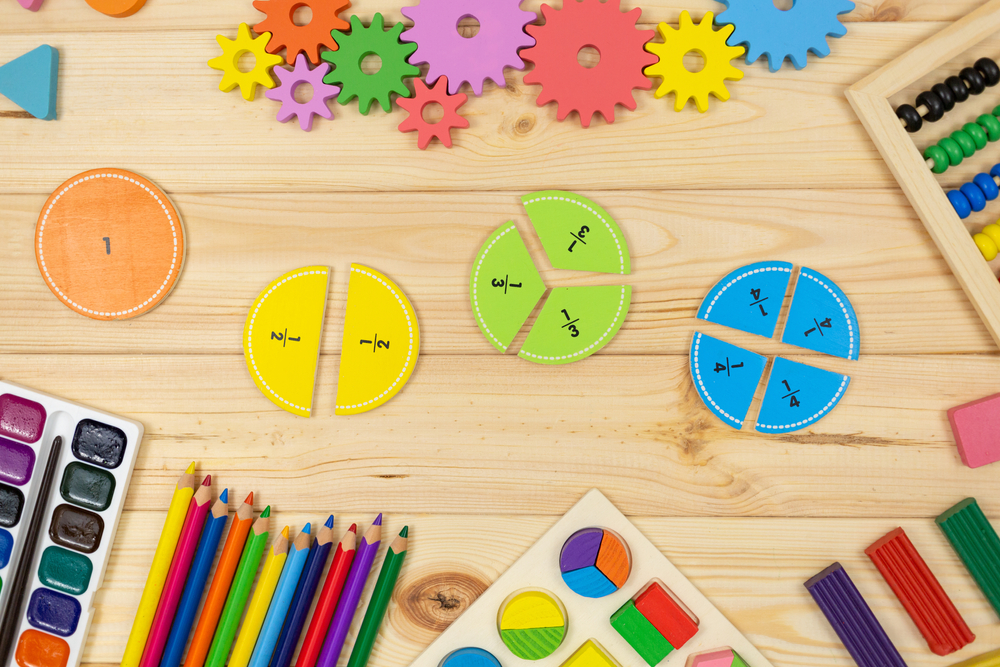Poems Worksheets Activities With Answers for Ages 3-7
10 filtered results
-
From - To
Discover a delightful collection of poems worksheets and activities designed specifically for ages 3-7. Our engaging resources promote early literacy and language development, helping young learners explore the joy of poetry. Each worksheet features fun, age-appropriate poems, complete with interactive activities that enhance comprehension and creativity. Whether it's rhyming exercises, fill-in-the-blanks, or matching games, children will enjoy expanding their vocabulary and improving their reading skills. Each activity comes with detailed answers for easy teaching and assessment. Dive into a world of rhymes and rhythms with our thoughtfully crafted materials that make learning poetry an enjoyable adventure for your little ones!


Rhymes in Poems Worksheet
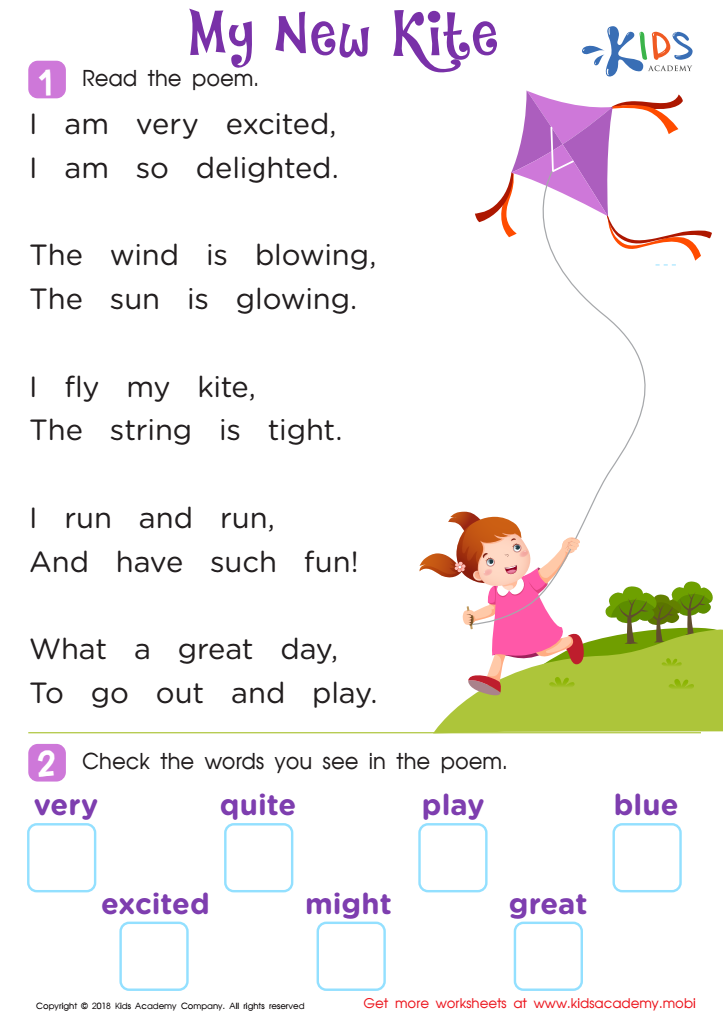

Poem: My New Kite Worksheet


Baa Baa Black Sheep Printable
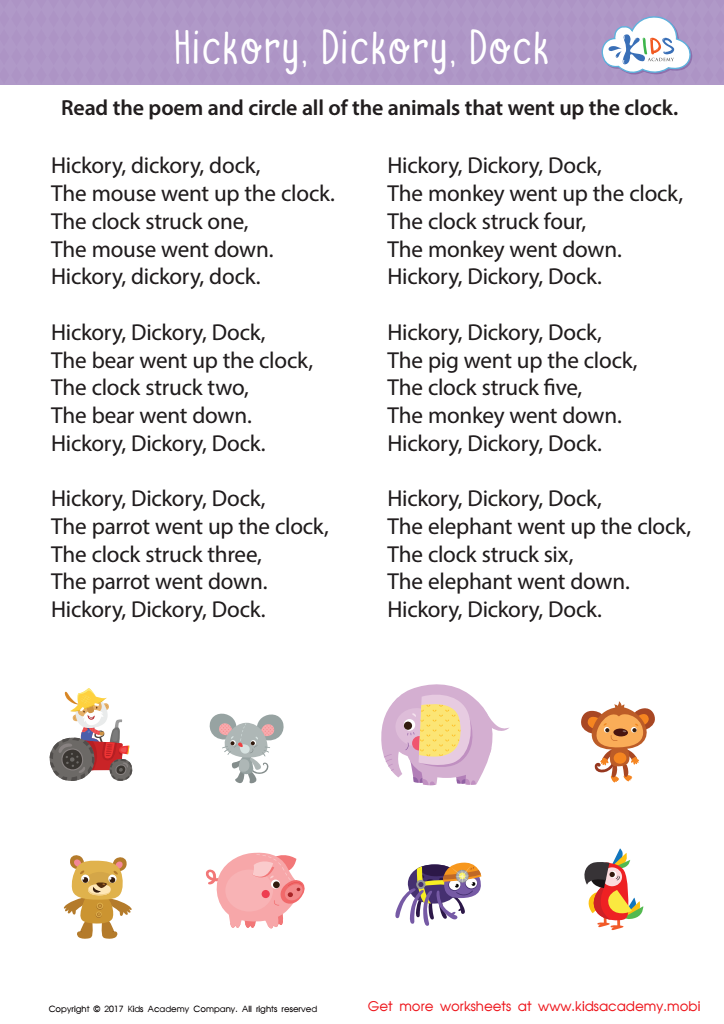

Hickory Dickory Dock Sequencing Worksheet
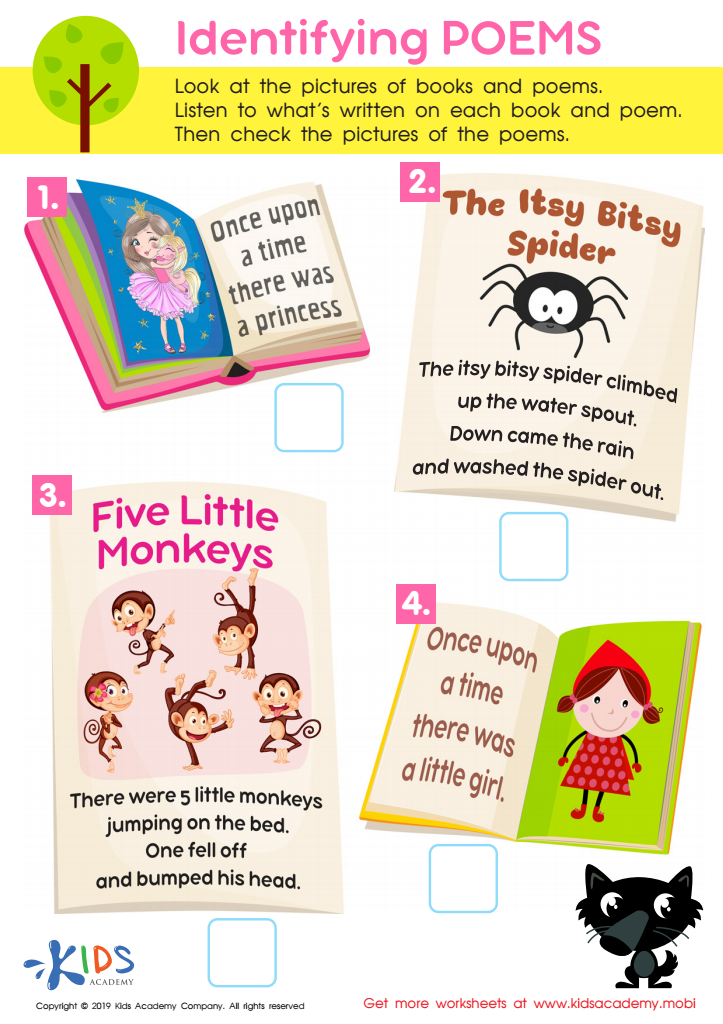

Identifying Poems Worksheet
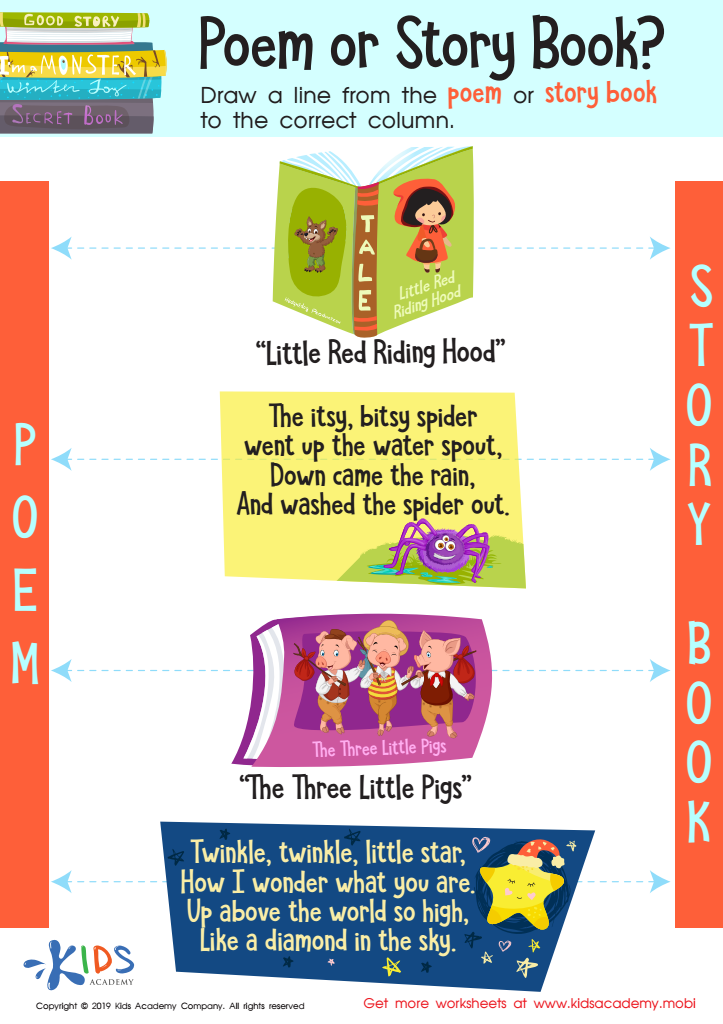

Poem or Story Book? Worksheet
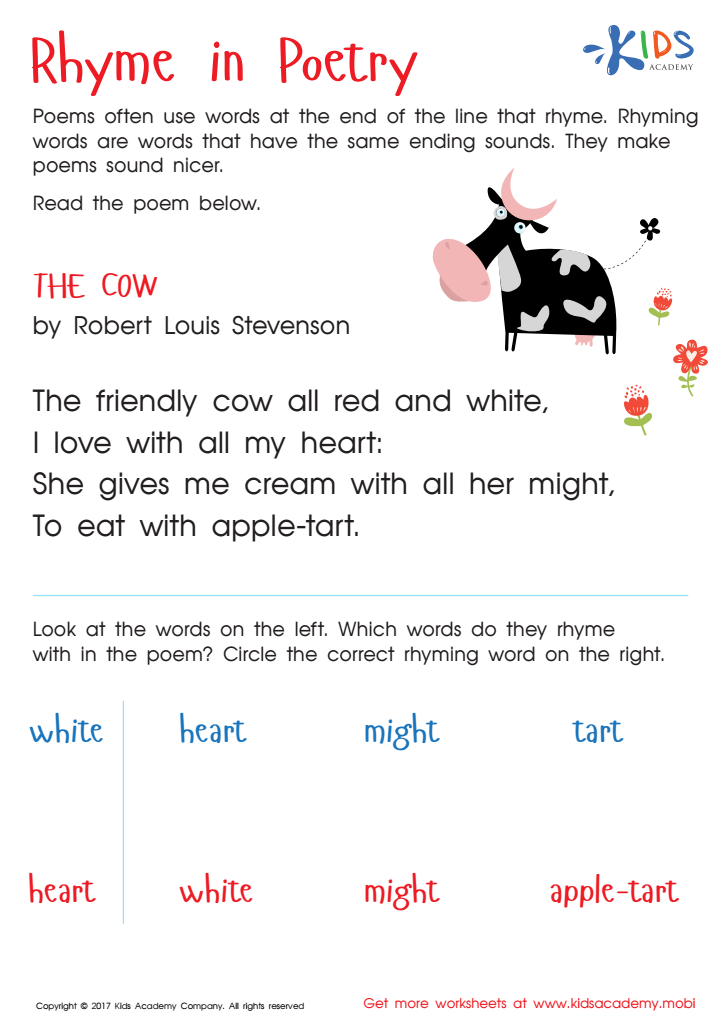

Rhyme In Poetry Worksheet
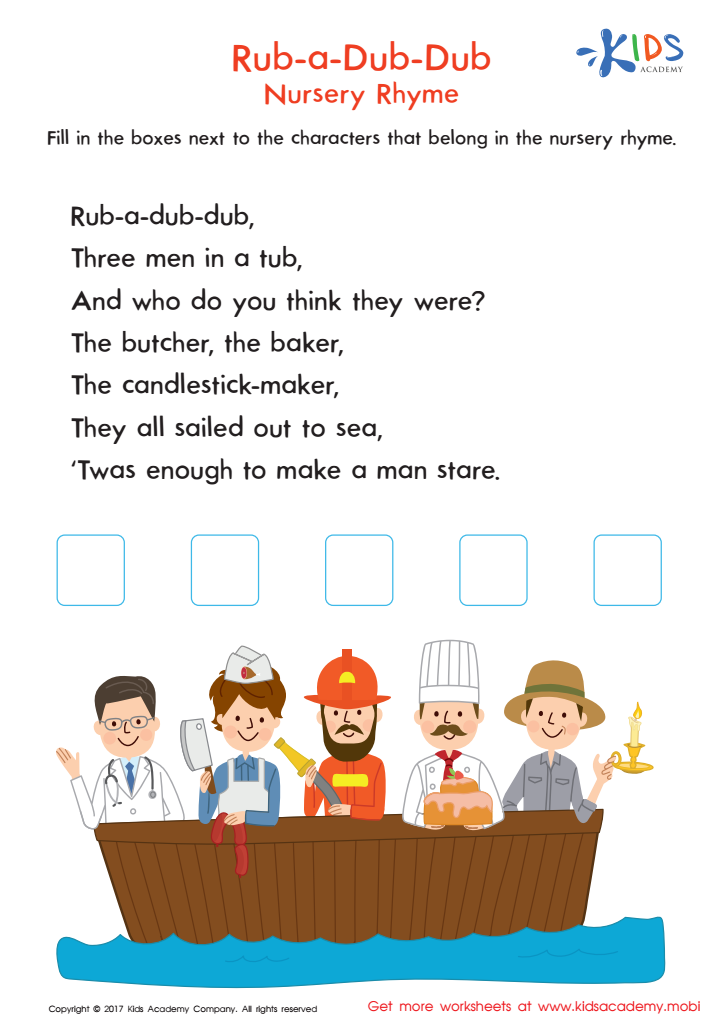

Rub a Dub Dub Printable
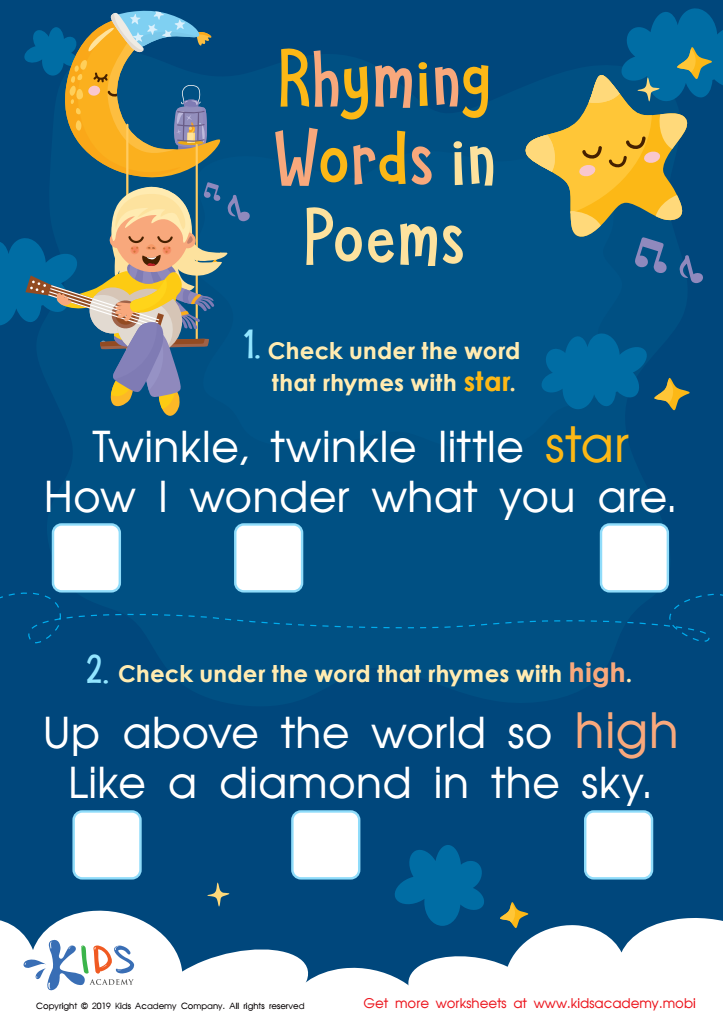

Rhyming Words in Poems Worksheet
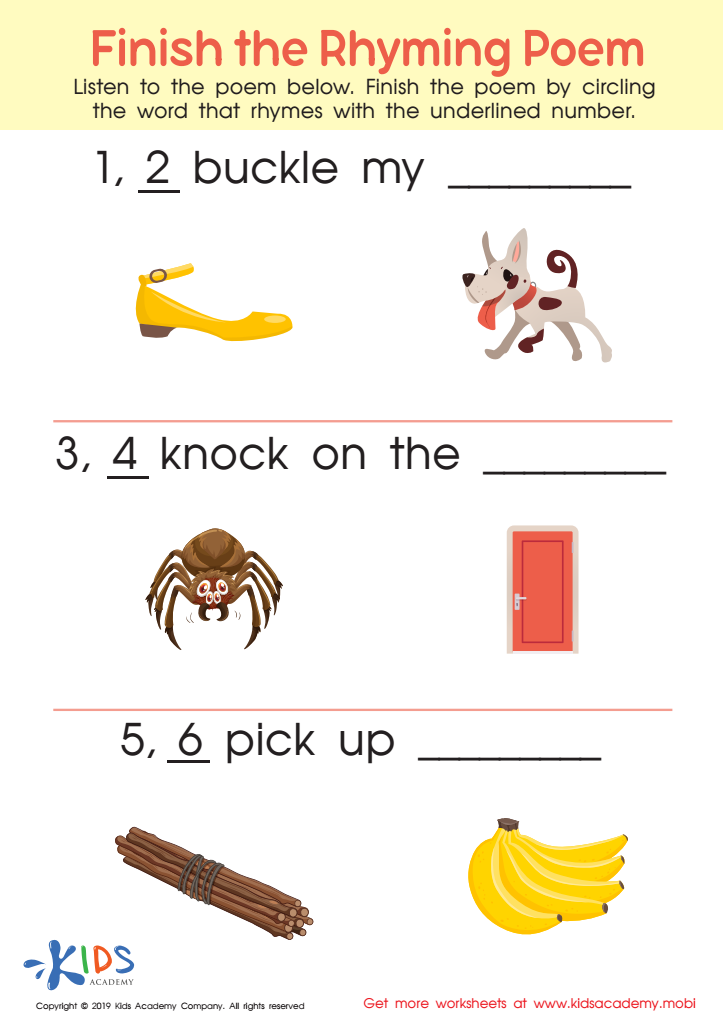

Finish Rhyming Poem Worksheet
Poems and poetry activities for children aged 3-7 are essential tools in early childhood education. They introduce young learners to the rhythm and sounds of language, enhancing phonemic awareness, which is crucial for reading development. Engaging with poems fosters a love for language and storytelling, strengthening vocabulary and comprehension skills.
Moreover, poetry encourages creativity and self-expression. Through activities like creating rhymes or acting out verses, children develop their imaginative thinking. This is vital as imagination fosters problem-solving skills and emotional intelligence.
Additionally, poem activities promote social interaction. They often involve group reading and discussions, helping children learn to cooperate, listen, and share ideas. This can build confidence and communication skills, preparing them for future social settings.
By integrating poems into educational routines, parents and teachers can make learning enjoyable and meaningful, tapping into children's natural curiosity and sense of play. Furthermore, using poems can help in introducing important themes, such as diversity, nature, and empathy, at a tender age. Overall, poems and related activities are invaluable in nurturing well-rounded, linguistically keen, and emotionally intelligent children.
 Assign to My Students
Assign to My Students




